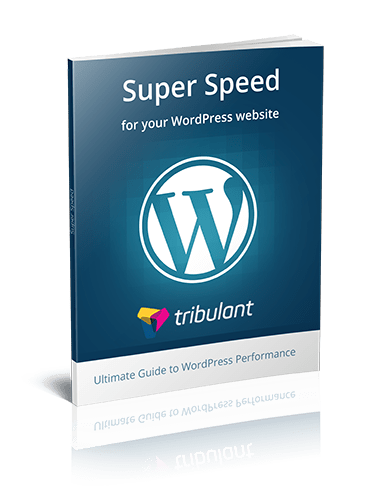
The Best CMS for SEO? Let’s Examine

Let’s have a look at the best CMS for SEO.

A content management system, or CMS for short, is a type of software which is used to create, edit and manage the content of a website. Content management systems are used to streamline the process of publishing online content, as they don’t require advanced technical knowledge such as programming or graphic design. A CMS suite typically offers a wide variety of customization options, which are handled either natively by the software, or through the use of various plugins.
One of the key aspects of online content creation is search engine optimization or SEO. This refers to the practice of making your content more search-engine friendly through targeting of specific keywords, providing a quality a user-experience, and keeping track of relevant metrics such as click-through rates.
Selecting the appropriate CMS can have a significant impact on your SEO efforts, as different CMS suites offer different options for handling SEO. In the rest of this article, we will provide an overview of some of the most popular content management systems on the market, including WordPress, Joomla, Drupal, and Magento. In preparation for writing the article, we’ve consulted with experts in order to hear opinions from people in the business. This will hopefully give you an idea of what to expect when it comes to choosing the right CMS for SEO strategy.
WordPress

WordPress is the most popular CMS currently in use, powering more than 75 million websites. It rose to popularity by being extremely easy to set up and use. While its core functionality is sufficient for most users, WordPress can also be expanded through the use of numerous plugins, which include SEO tools as well. Plugins may be WordPress’ best feature, but they can also be its greatest disadvantage.
For starters, WordPress’ plugin-heavy environment makes it vulnerable to attacks from hackers, who can exploit security loopholes in one of its many plugins. Another plugin-related disadvantage of WordPress compared to other CMS’ is that premium plugins can be quite expensive, making them inaccessible for smaller business. Finally, running multiple plugins at all times takes its toll on resources, which can make WordPress sites run slow.
As far as SEO is concerned, WordPress is reasonably accommodating. Advanced SEO tinkering can be achieved by technically-minded webmasters, and other can use one of the many plugins available.
Joomla

Close on WordPress’ heels is Joomla, the second most popular CMS with about 2.8 million using its services. Like WordPress, Joomla features an extensive collection of both premium and free plugins for every need. It is likewise easy to install and manage, so digital laymen will have an easy time adjusting. Joomla is known for being able to handle vast quantities of traffic (we are talking hundreds of thousands of visitors per day), provided it is set up properly.
Unfortunately, Joomla is also known for having more security vulnerabilities in comparison to other CMS’, making it a worse choice for commercial sites. The available plugins are less numerous than what WordPress is offering, and they are prone to compatibility issues
In terms of SEO, Joomla offers basically the same features as WordPress does. It is either done through plugins, or under the hood by webmasters with sufficient technical expertise. This makes it a good choice for beginners and intermediate users.
Drupal

Coming in 3rd in the race for the most popular CMS is Drupal, with about 1 million hosted websites. Drupal is extremely well-suited for backend modification – you can do almost anything with it, provided you have the skill and patience. This makes site-optimization for large amounts of traffic easily achievable. Drupal offers a variety of modules and plugins for less-savvy users as well. Of special note is Drupal’s in-built mobile optimization, which is extremely important in today’s mobile-focused online climate.
Drupal’s greatest strength is also its greatest weakness. The price of being able to handle anything is balanced out by a steeper learning curve, which can put off a lot of potential users. Additionally, it is far easier to break sites made in Drupal by mistake, and it can end up being quite slow in comparison to other more streamlined CMS’.
When it comes to SEO capabilities, Drupal takes the cake. The combination of plugins and backend customization makes it easy to perform minute optimizations, as well as to track relevant data.
Magento

Magento is something of a rising star among CMS suites. It is an open-source CMS based on MySQL and PHP that started out as a script for handling e-commerce websites. As such, it comes as no surprises that it shines most when developing business sites, offering multiple features for handling inventory, payment, invoicing, customer accounts, and more, all out of the box. Magento has the best security out of the CMS’ we have examined, meeting the 14 key protection criteria. It is the industry standard when it comes to managing online storefronts.
In comparisons to other CMS’, Magento is someting of a resource-hog, which in turn demands more expensive hosting services. It is also quite difficult to set up compared to other options, making it less -preferred choice for beginners. Magento requires quite a bit of customization to be presentable for consumers, which again requires either professional help, or a technically-minded webmaster.
Magento was built from the ground-up to be SEO-friendly. Once you have your website running, little additional optimization is required. This can be seen as a limitation for SEO experts who want to get as much as possible out of a website, but for the majority of users, it is quite sufficient.
Conclusion
When it comes to choosing the right CMS for your website, it suitability for search engine optimization should be one of your main concerns. A website without proper SEO will easily get lost in the online crowd. Conversely, managing your website through SEO-friendly CMS will make it much easier to reach the top of relevant search engine result pages. We hope this article will make your decision somewhat easier.
Aside from primary area of interest and expertise in business consulting with WordPress Web development experts, Ian could be tagged also as a passionate sports fan, nature and photography enthusiast, always trying to keep up to date with tech innovations and development, with a particular interest in trying to master the fine art of Social intelligence.
Website & Email Hosting
Get the best website & email hosting for speed, security, and peace of mind. No restrictions. Freedom to do what you need in order to run your business.



No comments yet